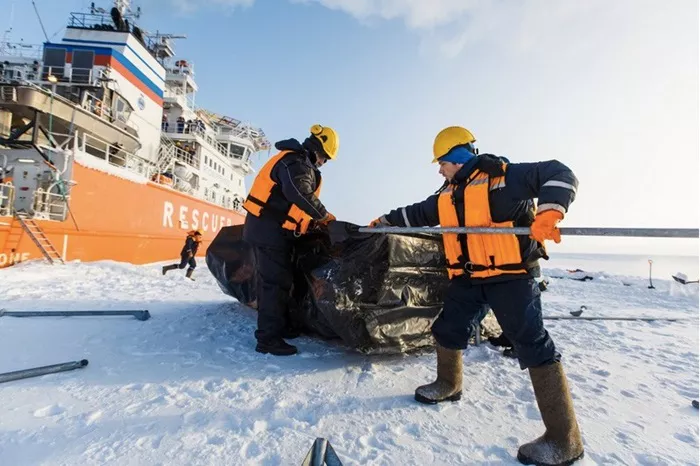Today, marks the implementation of an international ban on the use of Heavy Fuel Oil (HFO) in the Arctic region, as adopted by the International Maritime Organization (IMO) in June 2021. Aimed at safeguarding vulnerable Arctic waters from the risks associated with oil spills, the ban includes a transitional arrangement to facilitate compliance while mitigating environmental impacts.
Under the transitional provision, ships built after 2010 that adhere to international MARPOL regulations and feature protected fuel tanks can continue using HFO until 2029. These vessels are equipped with additional protective measures around their fuel tanks, significantly reducing the potential for oil spills in case of accidents.
Nina Prost, Director of Climate, Environment, and Safety at Danish Shipping, emphasized the ban’s importance in protecting the Arctic environment. She highlighted that allowing ships with protected fuel tanks to use HFO until 2029 strikes a balance between practical adaptation and environmental preservation.
The prohibition specifically targets oils with a density higher than 900 kg/m3 at 15°C or a kinematic viscosity exceeding 180 mm2/s at 50°C. However, exemptions are granted to ships engaged in safety operations, search and rescue, and those dedicated to oil spill preparedness and response.
Heavy Fuel Oil is notorious for its difficulty in cleanup in the event of a spill, particularly in colder waters where it congeals and sinks, posing a persistent threat to fragile Arctic ecosystems. Additionally, the combustion of HFO releases significant amounts of planet-warming gases and black carbon, exacerbating climate impacts by accelerating ice melt.
Dr. Sian Prior from the Clean Arctic Alliance underscored the environmental risks associated with HFO, advocating for stringent enforcement of the ban without loopholes. The alliance calls on IMO member states, especially Arctic coastal countries, to fully implement and enforce the ban, urging expanded regulations to reduce black carbon emissions from shipping.
Recent studies by the Arctic Council have highlighted a substantial increase in ship activity and distances traveled in Arctic waters, underscoring the urgent need for sustainable shipping practices to protect this fragile region.
Related topics:
How Much Fuel Oil Does A House Use?

